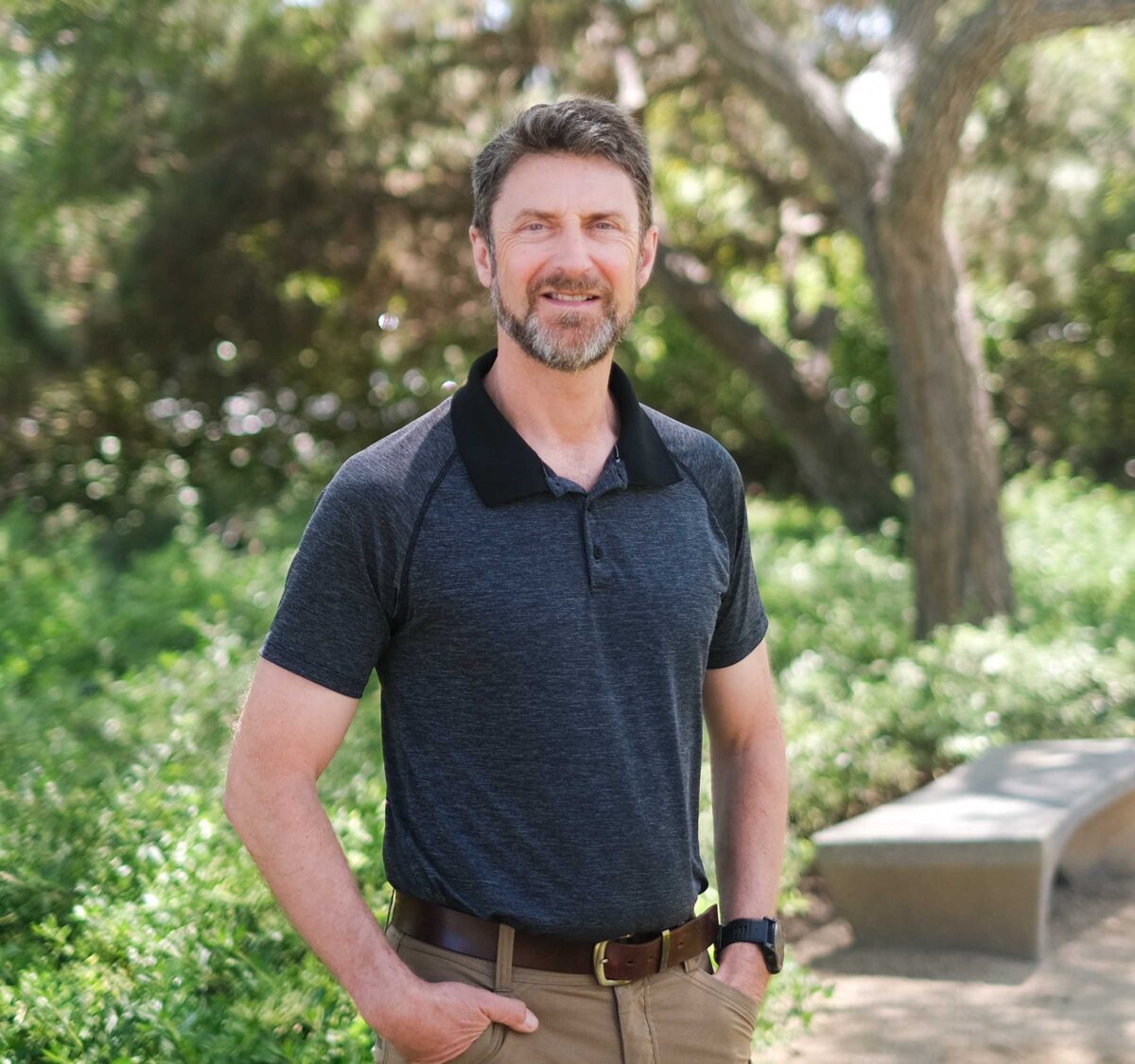Nicholas Cosford, PhD has served on the Sanford Burnham Prebys Board of Trustees since 2023. He is the first faculty member to do so.
Cosford joined the Sanford Burnham Prebys faculty in 2008 as an associate professor. In 2013, he became a full professor. His lab investigates the interactions of small molecule compounds with therapeutically important proteins and cellular signaling pathways. With a specific focus on the discovery and optimization of compounds that might treat cancer, central nervous system diseases and infectious diseases.
Prior to joining Sanford Burnham Prebys in 2005, Cosford worked in both the biotechnology and pharmaceutical industries. At Sibia Neurosciences and at Merck Research Laboratories, he directed multidisciplinary research teams focused on small-molecule hit-to-lead optimization and was responsible for moving several lead compounds through to the clinical phase, including a nicotinic agonist (Altinicline) from research to Phase II clinical trials for treating Parkinson’s disease.
He is an author of more than 90 peer-reviewed, published scientific papers, and has been issued more than 40 issued patents, with an additional 40 patent applications pending.
Cosford has a Bachelor of Science degree in chemistry from the University of Bath in England and Doctor of Philosophy degree in organic chemistry from Emory University in Atlanta, GA.
Related Disease
Alzheimer’s Disease, Amyotrophic Lateral Sclerosis (Lou Gehrig’s Disease), Bone Mineralization Disorders, Breast Cancer, Cancer, Neurodegenerative and Neuromuscular Diseases, Neurological and Psychiatric Disorders, Ovarian Cancer, Pancreatic Cancer, Prostate Cancer
We are interested in investigating the interactions of small molecule compounds with therapeutically important proteins and cellular signaling pathways. One aspect of our research emphasizes the use of medicinal chemistry and chemical biology approaches to probe intracellular pathways that regulate cell survival and cell growth. Another area of active research is the development of synthetic chemistry methodology using microfluidic technology for the rapid synthesis of biologically active small molecules. Therapeutically, we are primarily focused on the discovery and optimization of compounds that have the potential to treat cancer, CNS diseases and infectious diseases.
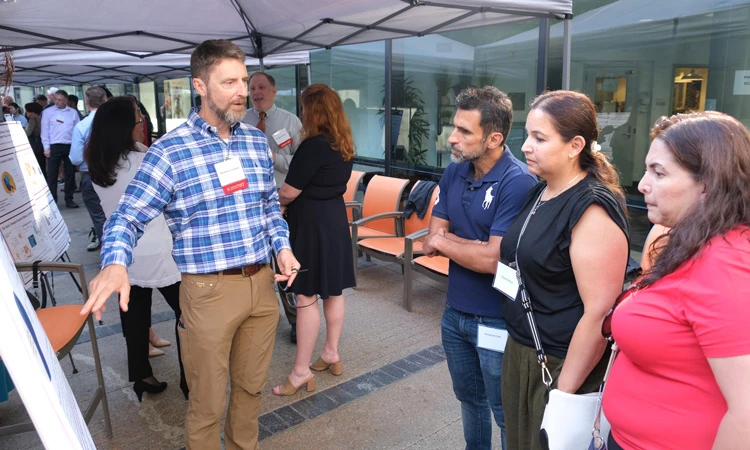 Aug 2, 2024
Aug 2, 2024Sanford Burnham Prebys event explores the science behind addiction
Aug 2, 2024Scientists and clinicians from three local research institutions converged July 31 to discuss new ways to treat multiple addictions at…
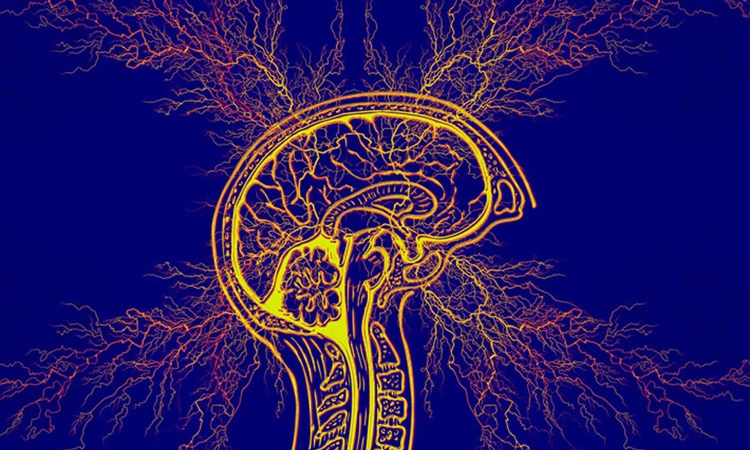 Jul 25, 2024
Jul 25, 2024The Science Behind Addiction
Jul 25, 2024Scientists and clinicians from three local research institutions converge July 31 to discuss new ways to treat multiple addictions at…
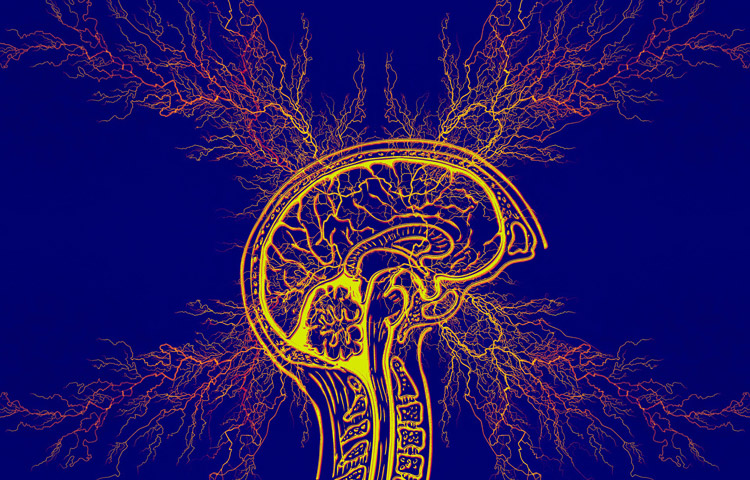 Nov 8, 2023
Nov 8, 2023From tobacco to alcohol to opioids, Sanford Burnham Prebys researchers are pursuing novel leads and promising therapies to treat addiction
Nov 8, 2023Addiction is perhaps the most and least visible of public health crises in the US. Tens of millions of Americans…
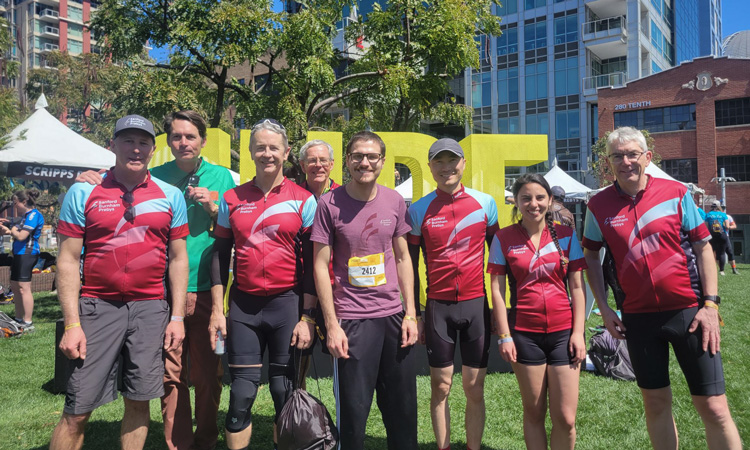 Mar 20, 2023
Mar 20, 2023Padres Pedal the Cause 2023: Team Sanford Burnham Prebys raises $50,000 for cancer research
Mar 20, 2023Team Sanford Burnham Prebys hit the pavement this weekend for Padres Pedal the Cause, an annual fundraising event that invites…
 Mar 20, 2023
Mar 20, 2023Sanford Burnham Prebys researchers awarded Curebound grants
Mar 20, 2023Each year, Sanford Burnham Prebys joins Padres Pedal the Cause, an annual fundraising event that raises money for Curebound which…
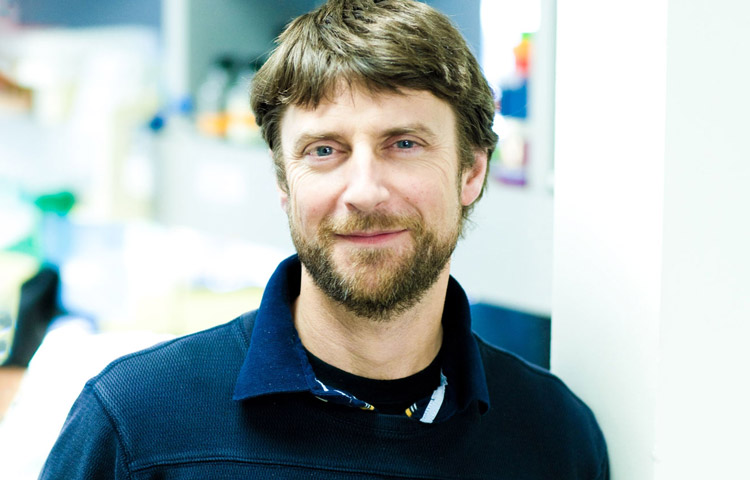 Mar 9, 2023
Mar 9, 2023Sanford Burnham Prebys elects Professor Nicholas Cosford to its Board of Trustees
Mar 9, 2023Sanford Burnham Prebys today announced that Professor Nicholas Cosford, PhD, will join the Institute’s Board of Trustees. “Scientists are the
